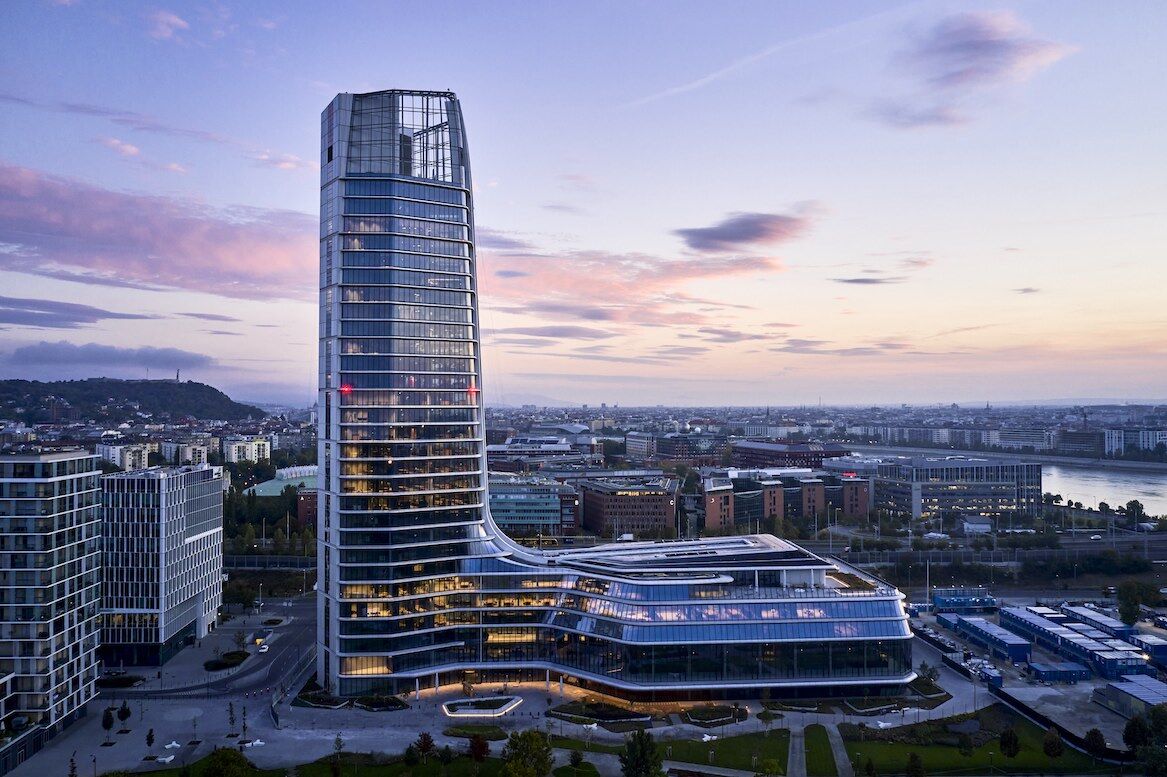CBRE: property yields in Hungary will remain stable
Property returns in Hungary remain stable despite a reduction in investment. This conclusion was reached by CBRE, which presented an analysis of the local market.
The economic situation in 2024 was the result of a slowdown in growth. Hungary’s GDP increased by only 0.6%, significantly lower than the initial forecasts. The main reason for this was the decline in exports caused by the slowdown in EU countries. Nevertheless, forecasts for the coming years remain moderately optimistic:
– in 2025, GDP growth is expected at 1.8–2.5%;
– in 2026–2027, a rise to 3.5%.
Investment has declined over the past period, but Hungary remains attractive for FDI. In 2024, the country will receive capital inflows of €10.3 bn. This figure is likely to remain at the same level in 2025. The real estate market received a share of €315 million, broken down by sector as follows:
– retail, 33%;
– office real estate, 20%;
– hotel sector, 16%;
– industrial properties, 14%.
Analysts also note a growing interest in smaller assets. This indicates a shift in investor strategies towards diversification and risk minimisation. Domestic investors remain the main players in the Hungarian market.

Yields overview
Yields in the country remain at last year’s level. However, the low liquidity of assets makes it difficult to assess. Even prime real estate is not in constant demand from investors. Actual yields for the main market segments are as follows:
– premium office sector – 7%;
– shopping centers bring 6.8% per annum;
– shopping parks provide an indicator of 7.4%;
– hotel real estate yields 7.5% per annum after a lease agreement.
Of particular interest are old buildings and plots of land, which open up new prospects for developers. Major hotel brands are ready to expand their activities on the Hungarian market. They are attracted by the growing number of tourists and students.
In addition, the Hungarian authorities have announced their intention to revise the regulatory framework for rental housing to increase its affordability. As part of this policy, the government has allocated funds for non-refundable grants for rental housing. Developers can receive incentives of up to 70% of the total cost of the property. Such changes are stimulating the construction market, especially in the apartment complex segment.
The office sector is developing at a moderate pace. This is due to delays in the realisation of current projects and the postponement of the launch of new facilities. A significant part of the supply originally planned for 2024 has been postponed to 2025. Economic instability became a limiting factor for the sector. Demand for office space was maintained, mainly through the renewal of existing leases. At the same time, the vacancy rate in the market is rising.
